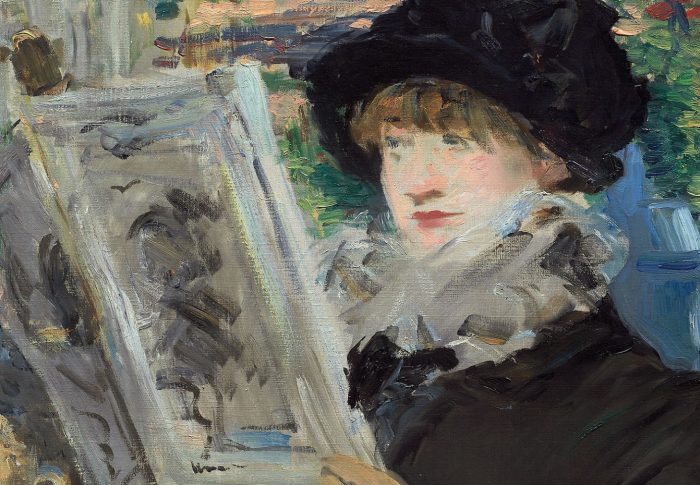
Readers are not consumers of books
Many things can be done with books: read them, interact with them, think about them, and use different words to describe the experience, such as contemplate, ponder, and consider. One can tell people about them, put them on hold, throw them away, borrow them from the library, buy them at bookstores or online, and argue passionately about them. What one cannot do is consume them.
It’s time to speak against the use of capitalist language to describe the artistic experience. As a colleague once frustratedly told me, words mean everything. We have all kinds of words that have been replaced and destroyed by “consumer”: fans, audience, audience, shout out, and reader. Why is it so hard to convey the essence of something?
I have many answers to this question, but one is simple: the publishing industry refers to readers as “consumers” because publishing is mostly a for-profit business in a capitalist world, and it cares about whether you buy books. When the industry refers to the consumer, it makes it clear that what matters is not whether you read the book, but whether you buy it. You serve books with your almighty money. After that? Uh, whatever.
Yes, there are some people in the publishing world who genuinely care if you read the books. But I’m talking about institutional size. That didn’t stop me, in my publishing job, from responding with “reader” every time my boss talked about “consumer,” but this is a small resistance of mine that I hope you will adopt.
As much as I dislike this industry practice, I understand where it comes from. What I don’t understand is why so many readers, including moviegoers, TV viewers, music fans, and others who love art in all its forms, are receptive to it. “What would you like to eat this weekend?” is a question I’ve seen online, seemingly devoid of irony.
My partner said that when he heard that, he thought of the Nintendo character Kirby, inhaling everything in his path. Kirby spits out some of these items as weapons and internalizes others as abilities or powers. Indeed, we experience art, and it changes us. But we are not Kirby. We accept art intellectually and emotionally, and it still exists. The truth about art is that it is not consumable. You can’t gobble it up like an apple, leaving just a core for whoever comes next. You can take it all, and it’s still there. You can inhale a book, a show, or a movie, and it stays there, ready to be breathed by the next viewer or reader. Consuming things makes them yours, not someone else’s.
Art was never just for you, with very few exceptions. Latte art. You can consume it.
Words mean things. If you think this is too picky and idiosyncratic, let me point you to another word that eliminates meaning: content. For a time, it seemed like “content,” a term that meant online things, would be stuck on the Internet. But now, content is everything. Movies have content. TV shows have content. Ad copy is content. Promotional material is content. If everything is content, it’s all the same and can be devalued in the same way (as we’ve seen with the corporate practices that lead to the current writers’ strike). Nothing is art. Nothing is film, literature, visual art, memoir, essay, or anything you want to experience. It’s all just content. Grain from the mill.
Why have things become as strange as they are? Air travelers are passengers. A shopper is a customer. A book lover is a reader. We’re movie lovers, art lovers, coffee lovers, tea lovers, sushi lovers, fashion junkies; we’re customers, visitors, and people who need things like toothpaste and dish soap. We are just consumers because capitalism makes it easier for us to be the same. Kirby’s tiny mouth, sucking in everything we can.
In the wonderful book that just came out, Monsters, which I haven’t finished because I want to savor it as much as I can, Claire Dederer writes:
We now exist in a structure where, in the context of capital, we are defined by our status as consumers. This is what empowers us. Our response is—dizzyingly—to make decisions about taste and stick to them. We’re obsessed with this stuff and huge fans of that stuff. We act as if our preferences matter because that’s the job late capitalism gives us. Funny thing—our choices and preferences do matter because some things have to. Our ego is constructed from the junk stuff we consume, but we still have feelings for people.
I hope Dederer rebuts that in this nuanced, wise, smart, and funny book on The Art of Scary Men, resisting it. I want her to say things don’t have to be this way. ButI have to agree with the main argument of this article that art cannot be consumed. The idea of consuming art reduces it to a mere product that can be bought and sold, and it ignores the deeper meaning and purpose of art.
While it is true that the publishing industry refers to readers as “consumers” because it is a for-profit business, it is important to resist this language and use more appropriate terms such as “readers” or “viewers” to describe those who engage with art. Art is not a commodity to be consumed and discarded, it is a valuable and meaningful expression of human creativity and emotion.
The use of the term “content” to describe all forms of artistic expression is also problematic, as it further reinforces the idea that art is simply a product to be consumed. By reducing all forms of art to “content”, it devalues the unique qualities and characteristics of each art form and fails to acknowledge the complexity and depth of artistic expression.
In conclusion, we should resist the language of consumption and commodification when it comes to art and instead recognize and appreciate the true value and meaning of artistic expression. Art cannot be consumed, it can only be experienced and appreciated.







Tagged book lovers, community, finding readers, neglected books, online